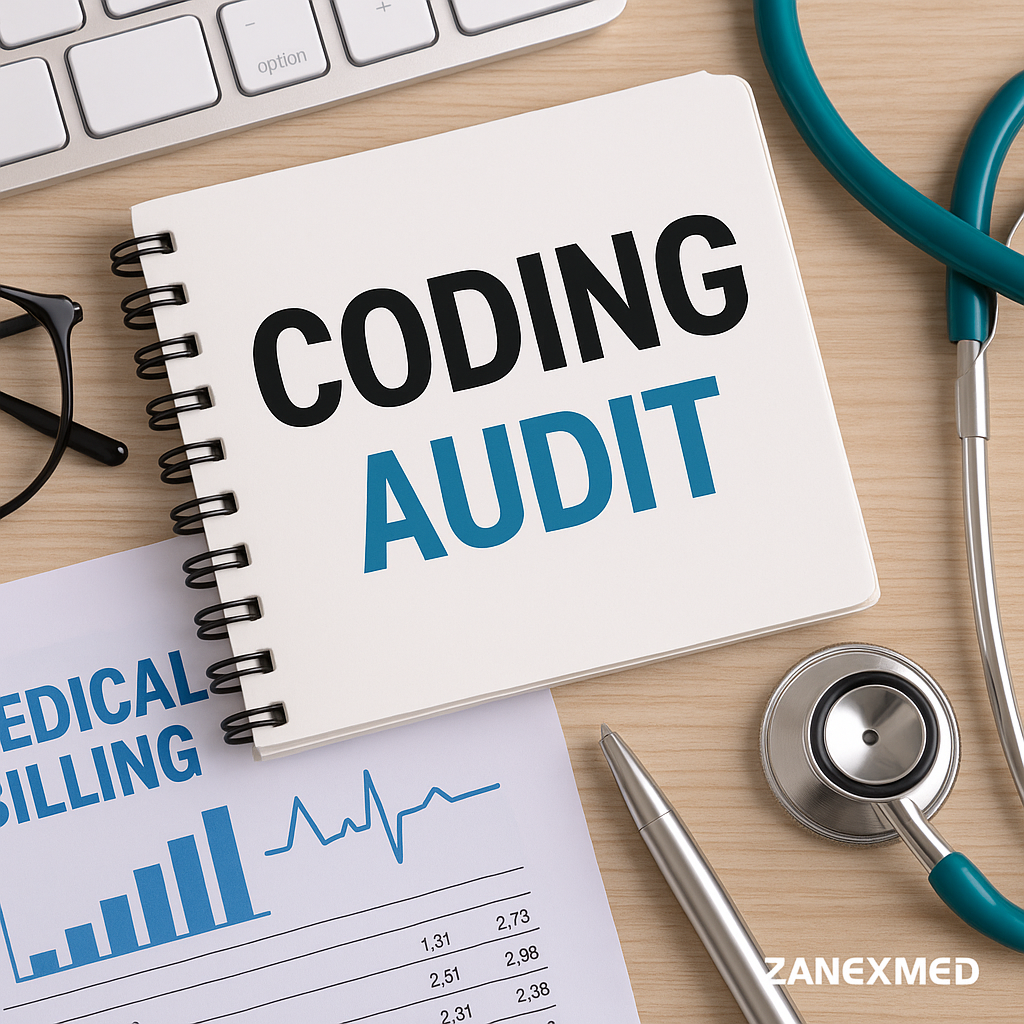In the world of medical billing, one small mistake in coding can lead to big financial losses. That’s why a coding audit is not just helpful — it’s necessary. A coding audit checks and reviews medical codes used in claims to make sure they are correct, compliant, and complete. It helps prevent claim denials, overpayments, and even legal issues.
In this article, we’ll explore what coding is, why it matters, and how regular audits can improve your revenue cycle management.

What is a Coding Audit?
A coding audit is a detailed review of medical records, patient charts, and submitted claims to ensure that the correct medical codes were used. It also checks whether the documentation supports the services billed.
There are two types of coding audits:
- Prospective Audit – Done before claim submission to prevent errors.
- Retrospective Audit – Done after claim submission to find and correct mistakes.
Both types help healthcare providers stay compliant with CMS, HIPAA, and payer-specific coding guidelines.
Benefits of Regular Coding Audit
Implementing regular coding audits offers multiple benefits:
Reduces Denials and Rejections
Incorrect codes often lead to claim denials. A audit catches these errors early, reducing rework and delays in payments.
Improves Revenue Integrity
When codes match the medical documentation, the healthcare provider is paid exactly what they deserve—no more, no less. This protects the practice’s financial health.
Ensures Regulatory Compliance
Medical billing is full of complex rules. Regular coding audits ensure that your billing is in line with federal and state regulations, helping you avoid penalties and audits from insurance companies or the government.
Identifies Training Needs
Audits often uncover trends, such as repeated errors from certain coders or departments. This helps in planning targeted training to improve accuracy.
Coding Audit vs. Internal Review: What’s the Difference?
Some providers confuse internal chart reviews with coding. While both are important, coding audits are more thorough and compliance-driven. They are usually done by certified coding experts who follow national coding standards and payer rules.
Tools and Best Practices for an Effective Audit
To run an effective coding audit, use the following tools and techniques:
- Certified Professional Coders (CPCs) or auditors trained in ICD-10, CPT, and HCPCS coding systems
- Audit templates for consistency and accuracy
- Benchmarking reports to measure audit performance over time
- AI-powered software to identify trends and red flags in coding patterns
Set a routine schedule for audits — quarterly or bi-annually — depending on your claim volume.
Why Coding Audit Are Critical for FQHCs and Small Practices
Federally Qualified Health Centers (FQHCs) and smaller clinics often work on thin margins. For them, even a small coding error can mean delayed payments or lost revenue. A proactive coding system helps:
- Ensure full reimbursement from Medicaid and Medicare
- Catch under-coding or over-coding before submission
- Maintain a strong and clean compliance history
Need Help With Your Coding Audits? Let Zanexmed Handle It
At Zanexmed, we specialize in comprehensive medical billing and audit services tailored for clinics, hospitals, and FQHCs. Our certified experts review your claims, fix coding issues, and provide detailed reports to improve your financial outcomes.
- Reduce denials
- Boost clean claim rates
- Stay 100% compliant
Let us take the stress out of coding so that you can focus on patient care.


